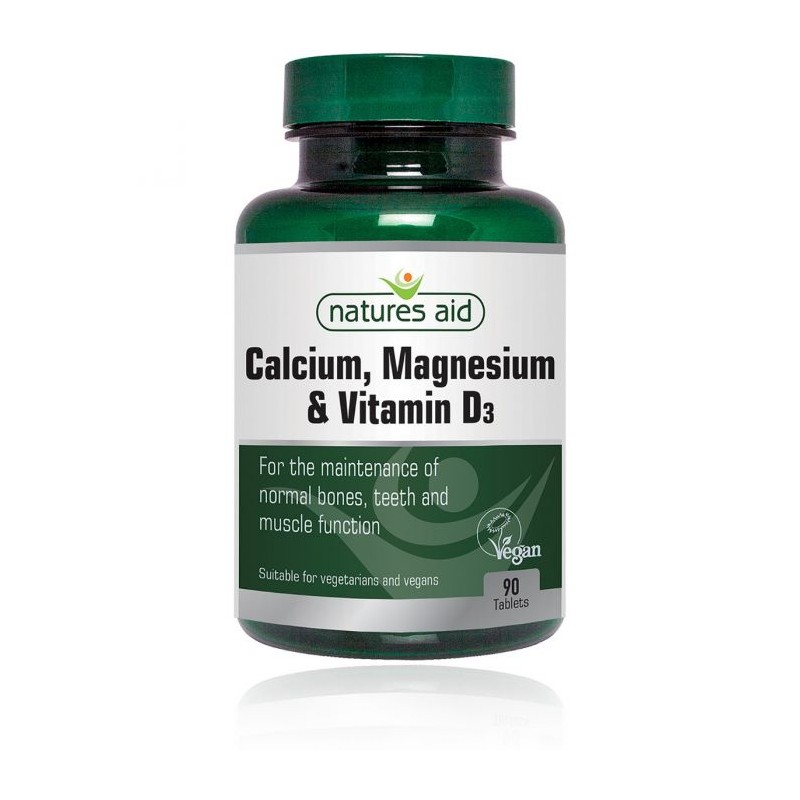











Privacy policy

Click & Collect ONLY

Return policy
Calcium and vitamin D help to reduce the loss of bone mineral in post-menopausal women. Low bone mineral density is a risk factor for osteoporotic bone fractures. Calcium and Vitamin D also contribute to the maintenance of normal bones and teeth. Vitamin D helps in the normal absorption and utilisation of calcium. Magnesium also helps support the maintenance of normal bones and teeth, contributes to normal muscle function and to a reduction in tiredness & fatigue. Just 2 tablets per day will provide the RDA of all these important nutrients.
Take 2 tablets per day with food. Do not exceed the recommended intake.
Microcrystalline Cellulose, Anticaking Agent (Silicon Dioxide), Tablet Coating (Hydroxypropylmethylcellulose), Anticaking Agent (Vegetable source Magnesium Stearate), Sodium Carboxymethylcellulose.
Vegetarian and Vegan. No artificial colours or flavours. FREE FROM: GM, dairy, lactose, gluten, wheat, yeast, nuts, salt, soya and sugar.
• Calcium, Magnesium and Vitamin D are needed for the maintenance of normal bones and teeth • Calcium, Magnesium and Vitamin D contribute to normal muscle function • Calcium and Magnesium contribute to normal energy-yielding metabolism • Calcium and Magnesium have a role in the process of cell division and specialisation • Calcium contributes to - ◦ normal blood clotting ◦ normal neurotransmission ◦ the normal function of digestive enzymes • Magnesium contributes to - ◦ a reduction of tiredness and fatigue ◦ electrolyte balance ◦ normal functioning of the nervous system ◦ normal protein synthesis ◦ psychological function • Vitamin D contributes to - ◦ normal absorption/utilisation of calcium and phosphorus ◦ to normal blood calcium levels ◦ the normal function of the immune system • Vitamin D has a role in the process of cell division • Calcium and vitamin D help to reduce the loss of bone mineral in post-menopausal women. Low bone mineral density is a risk factor for osteoporotic bone fractures